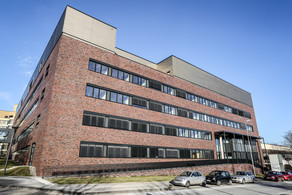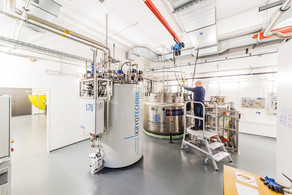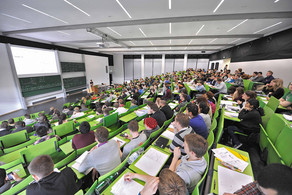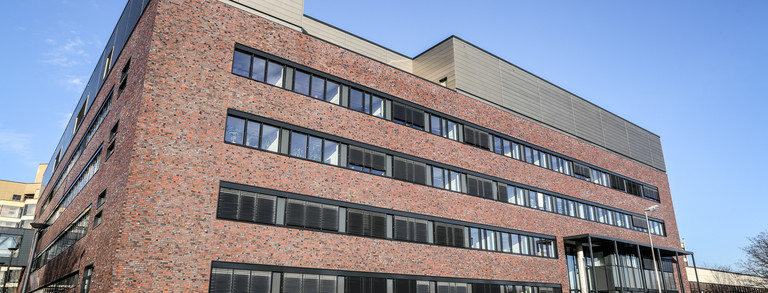Two new Emmy Noether junior research groups in physics
- News
- Research

Dr. Chris Malena Delitzsch and her junior research group are conducting research on the reconstruction and analysis of events with hadronic final states recorded at the ATLAS experiment at the LHC. This is to test predictions of the Standard Model of particle physics with high precision. "Measuring the coupling between the Higgs boson and the top quark, the heaviest particle in the Standard Model, is particularly interesting because deviations from predictions can point to new physics," says Dr Delitzsch. To detect even the smallest deviations, the group measures the top-Higgs coupling in previously unexplored phase spaces using jets with high energies. Jets are a kind of bundled particle beam and occur, among other things, when particles of the Standard Model decay hadronically.
Dr. Dominik Mitzel conducts research with his junior research group on experimental elementary particle physics with a special focus on flavour physics. The group is trying to find clues to new and previously undiscovered particles and interactions. These could help to answer many open questions in particle physics, such as what causes the observed matter-antimatter asymmetry in the universe. To find answers to such questions, Dr Mitzel's group analyses data from the LHCb experiment. The group focuses on rare decay processes of hadrons containing charm quarks, as these are particularly sensitive to tiny contributions from unknown particles. "Given the immense number of charm hadrons produced at the LHC, this opens up the possibility of looking for new phenomena in processes that have never been studied before," says Dr Mitzel.
Dr Delitzsch and Dr Mitzel will each receive funding of approximately one million euros for their junior research groups for the first three years, with the prospect of a further three years in a second funding period.
Particle physics is one of four research priorities of the Physics Faculty at TU Dortmund University. To strengthen the discipline, it has also been offering the International Master of Advanced Methods in Particle Physics (IMAPP) degree programme since 2021.
Contact persons for queries:








